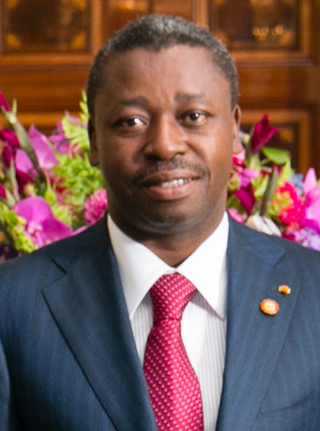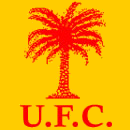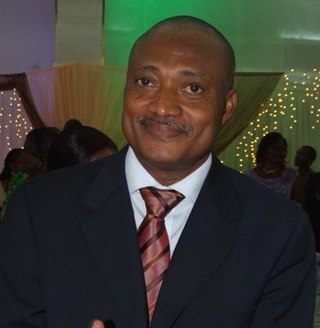The history of Togo can be traced to archaeological finds which indicate that ancient local tribes were able to produce pottery and process tin. During the period from the 11th century to the 16th century, the Ewé, the Mina, the Gun, and various other tribes entered the region. Most of them settled in coastal areas. The Portuguese arrived in the late 15th century, followed by other European powers. Until the 19th century, the coastal region was a major slave trade centre, earning Togo and the surrounding region the name "The Slave Coast".

Elections in Togo take place within the framework of a presidential system. Both the President and the National Assembly are directly elected by voters. Togo is a one party dominant state with the Union for the Republic in power.

Faure Essozimna Gnassingbé is a Togolese politician who has been the fourth president of Togo since 2005. Before assuming the presidency, he was appointed by his father, President Gnassingbé Eyadéma, as Minister of Equipment, Mines, Posts, and Telecommunications, serving from 2003 to 2005.

The Union of Forces for Change is an opposition political party in Togo. The President of the UFC was Gilchrist Olympio and its Secretary-General was Jean-Pierre Fabre until 10 August 2010. Olympio is the son of the first President of Togo, Sylvanus Olympio, who was assassinated in a 1963 coup. On 10 August 2010, Jean-Pierre Fabre was elected as President of the party.
The Rally of the Togolese People was the ruling political party in Togo from 1969 to 2012. It was founded by President Gnassingbé Eyadéma and headed by his son, President Faure Gnassingbé, after the former's death in 2005. Faure Gnassingbé replaced the RPT with a new ruling party, the Union for the Republic (UNIR), in April 2012, dissolving the RPT.

The Alliance of Democrats for Integral Development is a political party in Togo.

The Action Committee for Renewal is an opposition political party in Togo. Dodji Apévon has led the party since 2008; previously it was led by Yawovi Agboyibo from 1991 to 2008.

The Democratic Convention of African Peoples is a political party in Togo. It is a consultative member of Socialist International.
The Pan-African Patriotic Convergence is a political party in Togo. Former Prime Minister Edem Kodjo is the President of the CPP as of 2007.
Yawovi Madji Agboyibo was a Togolese attorney and politician. He served as Prime Minister of Togo from September 2006 to December 2007 and was National President of the Action Committee for Renewal (CAR), an opposition political party, from 1991 to 2008. He was the Honorary President of the CAR.
The Party for Democracy and Renewal is a political party in Togo. It was founded on May 1, 1991, and its National President is Zarifou Ayéva.

The Movement of Centrist Republicans is a political party in Togo.
The Union of Socialist Democrats of Togo is a political party in Togo. The party participated in the October 2007 parliamentary election, but did not win any seats.

Coordination of New Forces is a political party in Togo led by Joseph Kokou Koffigoh.

Dama Dramani is a Togolese politician who was the President of the National Assembly of Togo from 2013 to 2018. He was Secretary-General of the Rally of the Togolese People (RPT), the ruling party, from 2003 to 2006, and following the 2007 parliamentary election he was President of the RPT Parliamentary Group in the National Assembly.

Jean-Pierre Fabre is a Togolese politician and the President of Togo's main opposition party, the National Alliance for Change.

Parliamentary elections were held in Togo on 24 March 1985. The country was a one-party state at the time, with the Rally of the Togolese People as the sole legal party. Unlike the previous election in 1979 when a single list of candidates was presented to voters for approval, this election was contested by 216 candidates running for 77 seats and 22 reserve members. Voter turnout was reported to be 78.6%.

Parliamentary elections were held in Togo on 21 March 1999. They were boycotted by the eight opposition parties, who been rebuffed in their insistence that talks following the controversial presidential elections the previous year must be completed prior to the parliamentary elections. As a result only three parties ran in the elections, the ruling Rally of the Togolese People (RPT), together with two small parties allied with it; the Coordination of New Forces and the Pan African Environmentalist Party. In addition, twelve independent candidates also ran.
This national electoral calendar for the year 2002 lists the national/federal direct elections to be held in 2002 in the de jure and de facto sovereign states. By-elections are excluded, though national referendums are included.

Parliamentary elections were held in Togo on 29 April 2024 to elect the 113 members of the National Assembly, alongside the first regional elections in the country. The ruling Union for the Republic won 108 of the 113 seats.






